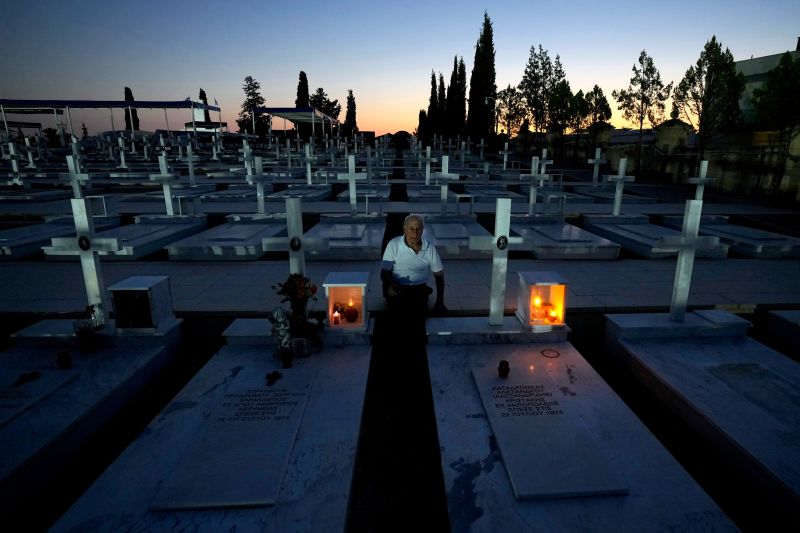The Greek and Turkish Cypriot communities commemorated the 50th anniversary of the division of Cyprus in markedly different ways. As Greeks commemorated this day with mourning and solemnity, Turks marked it with celebratory fanfare, reinforcing the gulf that exists even after five decades.
The island nation of Cyprus, in the Eastern Mediterranean, has been divided into two halves since 1974. The northern, smaller part of the island is inhabited by Turkish Cypriots and is recognized only by Turkey as an independent country. The bigger southern part is home to Greek Cypriots and recognized globally as the Republic of Cyprus, a member of the European Union.
For Greek Cypriots, this day serves as a painful reminder of the division of their homeland, a division that was solidified after a military intervention by Turkey in the wake of a coup d’état aimed at uniting the island with Greece. This day, every year, is marked with grief, sadness, and remembrance. The Church bells toll, echoing the lament of the divided nation, with homage paid to fallen heroes and those still missing. Families visit the graves of their loved ones, lost in the conflict, while others quietly reflect on the cost of division. The trauma of the division still reverberates across the communities, reflected in the tear-streaked faces of the elderly and the solemnity of the young.
On the other side of the island, the Turkish Cypriots mark this day with elaborate parades and fireworks, celebrating the establishment of the Turkish Republic of Northern Cyprus. For them, the day symbolizes their freedom from what they perceived as a repressive Greek regime. Turkish flags flutter across the northern region, their red and white hues filling the open sky. There are concerts, festivities and a display of Turkish military prowess, serving as a show of national strength and unity, bringing Turks in celebration of their sovereignty.
Despite efforts by the United Nations and various international bodies to bridge the gap, the division seems only more prominent on this poignant day. While Greek Cypriots mourn the loss of unity, rights, and homeland, Turkish Cypriots celebrate the jubilation of autonomy and perceived freedom.
The contrast between how these two communities commemorate this day is a stark reminder of the vivid differences in their perceptions of history, national identity, and belonging. The stark duality of grief and celebration serves to elucidate the complexity of the Cypriot conflict and the enduring gulf that has affected relations, not just in Cyprus, but between Greece and Turkey as well.
Moreover, this day shines a spotlight not only on the socio-political implications of the division and on the deeply etched emotional scars that this dividing line has inflicted over the last 50 years, but also on the uncertain future that awaits the island and its inhabitants. As Cyprus commemorates half a century of division, the hope for reconciliation lingers, albeit overshadowed by the distinctively different ways that Greek and Turkish Cypriots observe this day.
In conclusion, the division that happened 50 years ago continues to shape and define Cyprus. It’s a poignant reminder of a history marred by conflict, and a present dictated by division. Despite five decades passing, it is evident that the divide is not just physical, but deeply emotional, and therein lies the challenge and the need for healing, dialogue, and diplomacy. If Cyprus is to find a path toward unified peace, it must address not only the territorial dispute but also the starkly divergent narratives and emotions that Greeks and Turks hold concerning their shared history.




